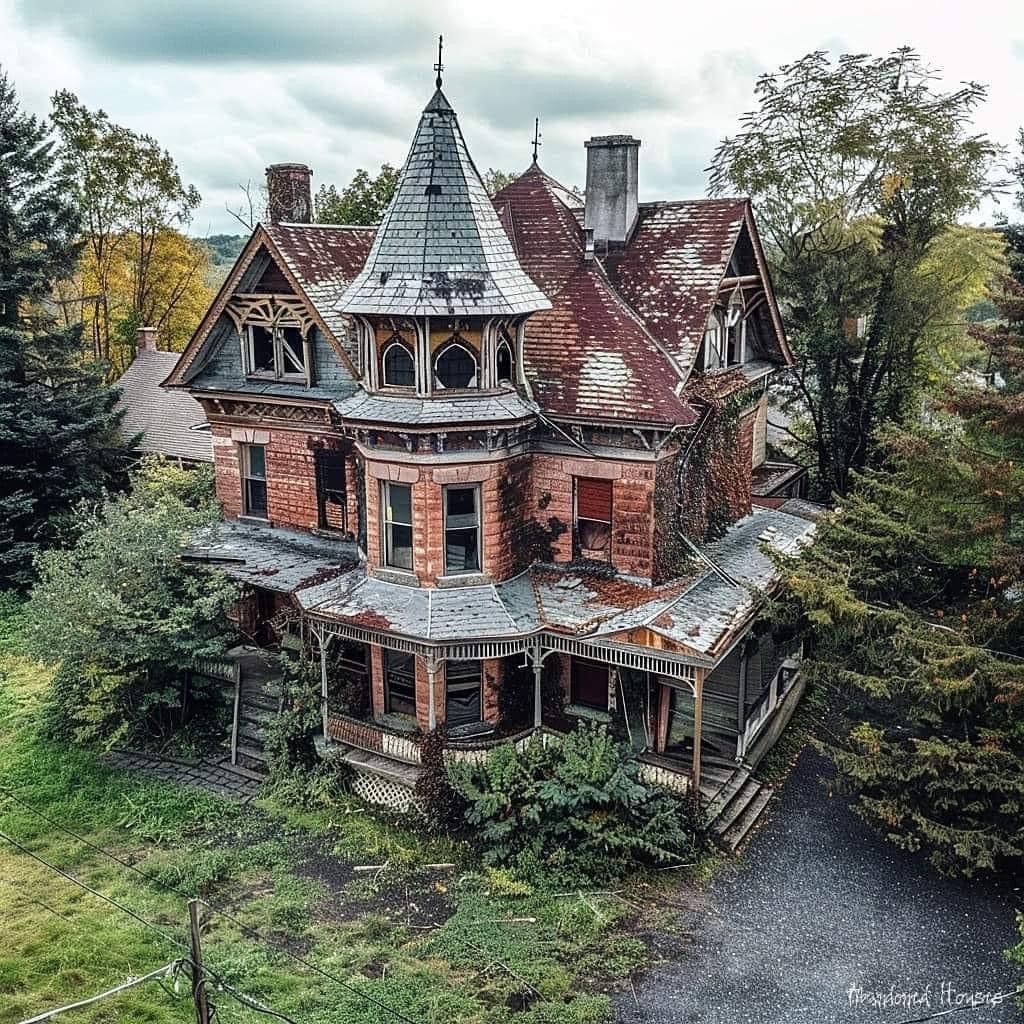Once upon a time, on the outskirts of a forgotten village, there stood an old mansion. Its towering spires pierced the sky, and its windows, long clouded with dust, seemed to hide the secrets of centuries. Locals whispered about the place, but no one dared venture near. They called it “The House of Sorrows.”
The mansion had not always been empty. Decades ago, it was a lively home filled with laughter, music, and love. It belonged to the Montclair family—wealthy, kind-hearted people who were beloved in the village. The father, Victor, was a respected doctor, and his wife, Eleanor, was known for her kindness and charitable works. They had a daughter, Eliza, who was the light of their lives.
But happiness can be fleeting.
One cold winter night, a terrible illness swept through the village, claiming many lives. Victor, desperate to save his patients, neglected his own family. By the time he returned to the mansion, Eleanor had succumbed to the illness, and Eliza was slipping away. Grief-stricken and guilt-ridden, Victor could not bear the loss. He locked himself away in the mansion, never to be seen again. The house fell into disrepair, and soon after, the villagers began to speak of strange occurrences.
Candles would light themselves in the dead of night, whispers echoed through the empty halls, and those who dared to approach claimed they could hear the faint notes of a piano playing, though no one was there to play it.
Years passed, and the mansion became a ghostly relic of the past. One evening, a young woman named Clara arrived in the village. She was a historian, drawn to the mystery of the mansion. Clara had lost her parents in a tragic accident years ago, and she felt a deep connection to the sadness that surrounded the old house.
Despite the villagers’ warnings, Clara made her way to the mansion. As she stepped inside, the air was thick with sorrow. The once-grand staircase creaked under her feet, and shadows danced on the walls. But Clara was undeterred. She felt as if the house was calling to her, as if it needed her.
As she explored the mansion, Clara found a small, dusty music room. In the center was a grand piano, covered in a thick layer of dust. As she brushed her fingers across the keys, she felt a chill run down her spine. The air seemed to grow colder, and a figure appeared—a translucent image of a young girl, her eyes full of sadness.
It was Eliza.
Eliza’s spirit was trapped, bound to the mansion by her father’s grief. Clara, with her own heart heavy from loss, felt an overwhelming urge to help. She began playing the piano, a soft, haunting melody that filled the room. Eliza’s ghostly figure seemed to glow brighter, her sadness slowly lifting.
As Clara played, memories flooded the room. The spirit of Victor appeared, his eyes filled with regret. The music swirled around them, carrying with it the echoes of a love lost but never forgotten. The spirits of Eleanor and Victor embraced, and Eliza smiled, finally free of the pain that had kept her bound to this world.
The mansion, once filled with sorrow, was now filled with light. Clara knew it was time to leave, but she did so with a heart a little lighter, knowing she had helped the family find peace.
As she walked away from the mansion, the sun began to rise, casting warm light on the old stone walls. The villagers, seeing the change in the once-haunted house, no longer spoke of it with fear, but with reverence for the love that had endured even beyond death. And though the mansion would never be fully restored, it would forever be remembered as the place where sorrow was transformed into a bittersweet serenity.

